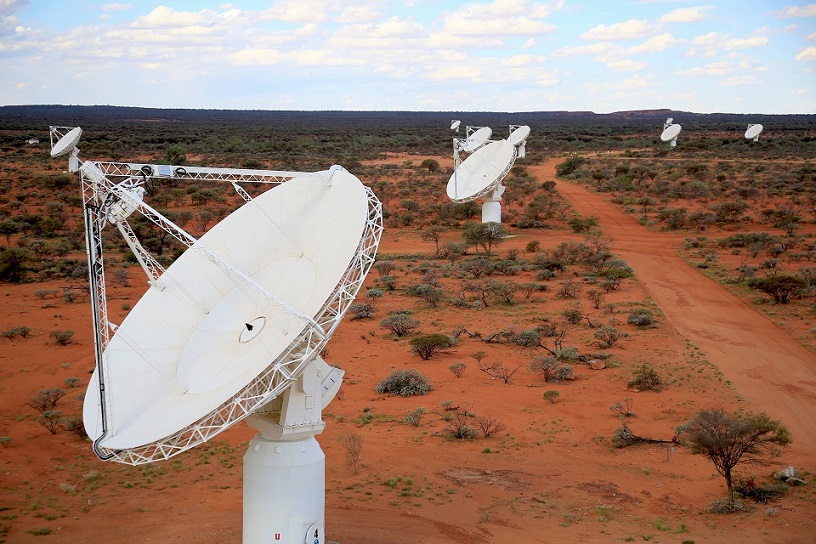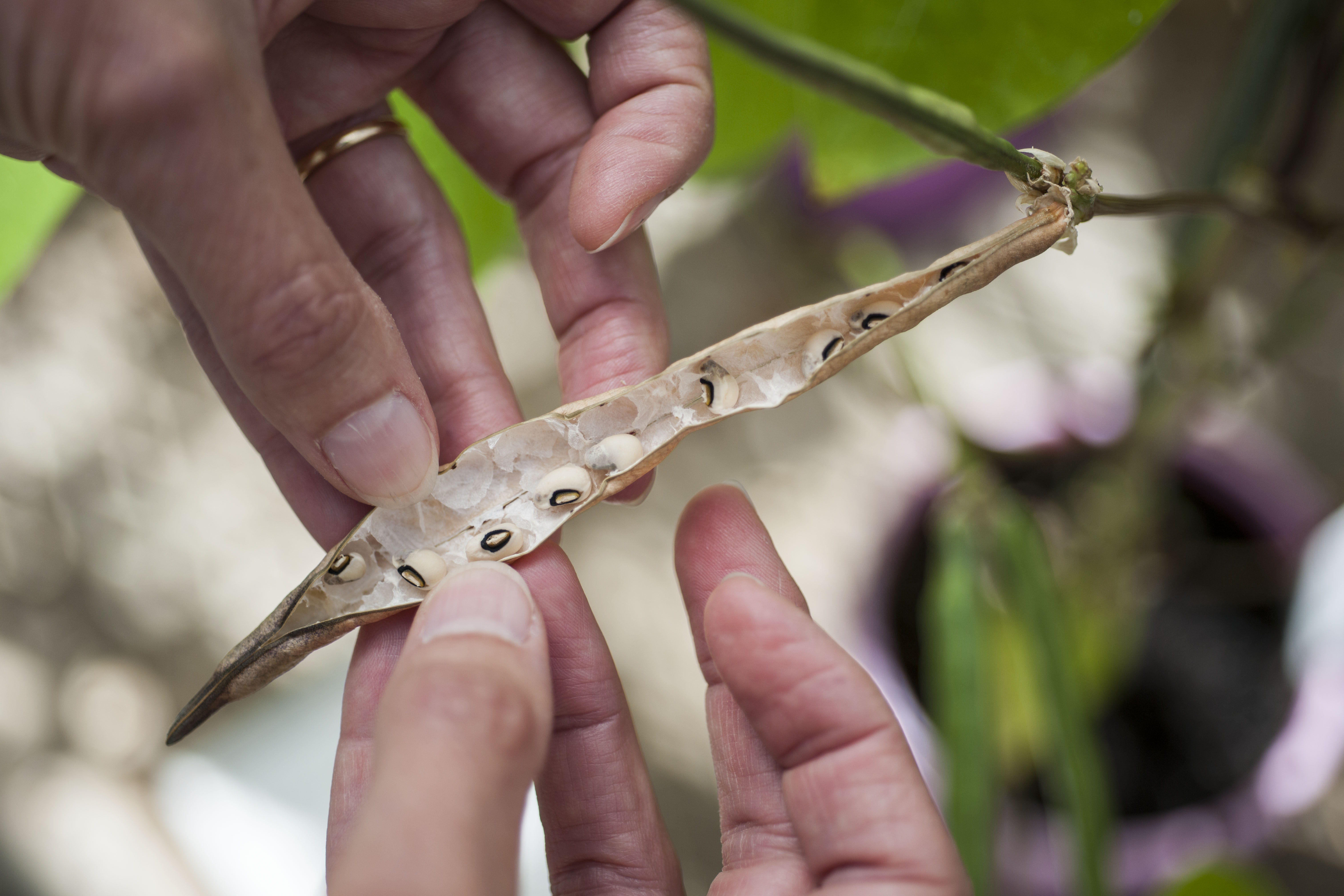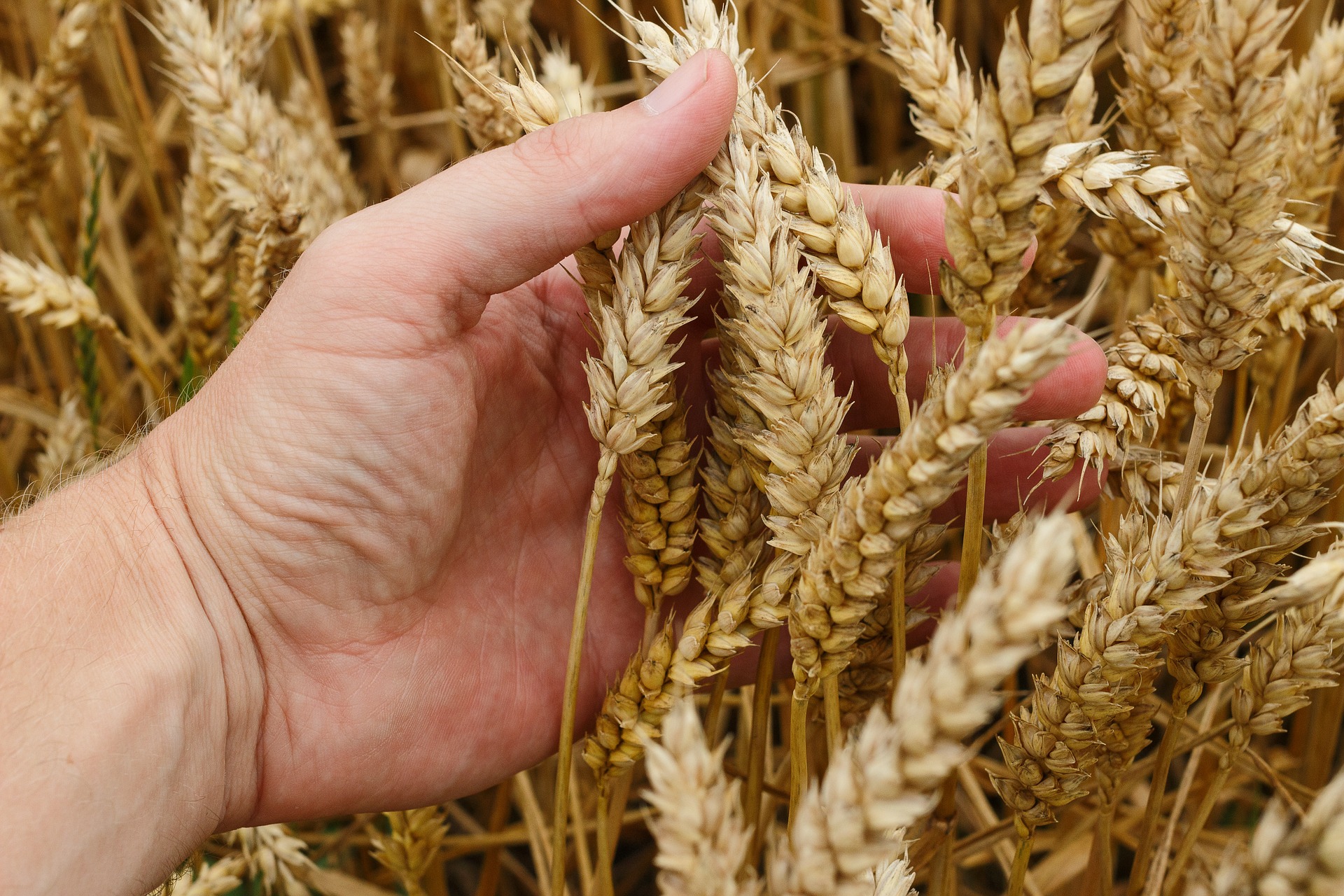Collaborating with Germany’s largest scientific organisation across a range of areas

The Helmholtz Association is Germany's largest scientific organisation and brings together 18 scientific-technical and biological-medical research centres. Collaboration with CSIRO includes:
- Plant science with the Forschungszentrum Jülich, one of the largest interdisciplinary research centres in Europe.
- Earth observation informatics and solar energy research with the Deutsches Zentrum für Luft- und Raumfahrt (DLR), the German Aerospace Centre.
CSIRO has an agreement with GeoForschungsZentrum (GFZ), the German Research Centre for Geosciences, for collaboration in remote sensing and geosciences information. In 2014 the agreement was extended for a further five years and expanded to include other Earth science areas.
CSIRO-GFZ collaboration includes:
- Membership of an international fracture mechanics collaboration.
- An R+ postdoctoral project Life in Ore Deposits for Exploration Success (LODES): metal-eating bugs in the deep biosphere.
- A CSIRO geochemist is part of the Scientific Advisory Group for Helmholtz Digital Earth. The project aims to strengthen the collaboration on data science between Helmholtz Centres involved in the earth and environment research field.
- A CSIRO Principal Research Scientist is part of the Science Advisory Group of the German hyperspectral satellite mission EnMAP, led by DLR and GFZ.
Collaborating on projects in radio astronomy

The Max Planck Gesellschaft is also known as The Max Planck Society for the Advancement of Science. The society is a formally independent non-governmental and non-profit association of German research institutes founded in 1911. The society comprises 80 Max Planck Institutes which conduct basic research in the service of the general public in the natural sciences, life sciences, social sciences and the humanities.
Collaboration with CSIRO includes:
- An agreement with the Max Planck Institute for Radio Astronomy.
- The Square Kilometre Array (SKA), a global science and engineering project to build the world's largest radio telescope. The SKA is a next-generation radio telescope that will be vastly more sensitive than the best present-day instruments. Both South Africa's Karoo region and Western Australia's Murchison Shire were chosen as co-hosting locations for the telescope arrays as they are some of the most remote locations on Earth.
- A CSIRO researcher who was transferred to the Max Planck Institute for Radioastronomy (MPIfR) throughout 2018 and worked on projects for the MPIfR Electronics Division.
Delivering increased crop yields in sub-saharan Africa with German partners

The Bill and Melinda Gates Foundation (BMGF) invited CSIRO to scope and lead a project entitled Capturing Heterosis. This project will use novel reproductive technologies for delivering increased crop yields in cowpea and sorghum to smallholder farmers in Sub-Saharan Africa who grow and consume these crops.
The project is in collaboration with the Leibniz Institute of Plant Genetics and Crop Plant Research (IPK) and aims to increase agricultural production of sorghum and cowpea for smallholder farmers through hybridisation of these crops. Over 200 million people in Sub-Saharan Africa are impoverished and undernourished.
Cultivating advanced varieties of cereals

CSIRO and German agricultural giant Bayer CropScience have an ongoing multimillion dollar collaboration which commenced in 2009.
The partners are working on projects in the cultivation of wheat, barley and rye with a primary focus on wheat. They are collaborating to develop new varieties of cereals that will grow greater yields, be more tolerant to drought and heat and make more efficient use of nitrogen fertiliser.
Collaborating with Germany’s largest scientific organisation across a range of areas
The Helmholtz Association is Germany's largest scientific organisation and brings together 18 scientific-technical and biological-medical research centres. Collaboration with CSIRO includes:
- Plant science with the Forschungszentrum Jülich, one of the largest interdisciplinary research centres in Europe.
- Earth observation informatics and solar energy research with the Deutsches Zentrum für Luft- und Raumfahrt (DLR), the German Aerospace Centre.
CSIRO has an agreement with GeoForschungsZentrum (GFZ), the German Research Centre for Geosciences, for collaboration in remote sensing and geosciences information. In 2014 the agreement was extended for a further five years and expanded to include other Earth science areas.
CSIRO-GFZ collaboration includes:
- Membership of an international fracture mechanics collaboration.
- An R+ postdoctoral project Life in Ore Deposits for Exploration Success (LODES): metal-eating bugs in the deep biosphere.
- A CSIRO geochemist is part of the Scientific Advisory Group for Helmholtz Digital Earth. The project aims to strengthen the collaboration on data science between Helmholtz Centres involved in the earth and environment research field.
- A CSIRO Principal Research Scientist is part of the Science Advisory Group of the German hyperspectral satellite mission EnMAP, led by DLR and GFZ.
Collaborating on projects in radio astronomy
The Max Planck Gesellschaft is also known as The Max Planck Society for the Advancement of Science. The society is a formally independent non-governmental and non-profit association of German research institutes founded in 1911. The society comprises 80 Max Planck Institutes which conduct basic research in the service of the general public in the natural sciences, life sciences, social sciences and the humanities.
Collaboration with CSIRO includes:
- An agreement with the Max Planck Institute for Radio Astronomy.
- The Square Kilometre Array (SKA), a global science and engineering project to build the world's largest radio telescope. The SKA is a next-generation radio telescope that will be vastly more sensitive than the best present-day instruments. Both South Africa's Karoo region and Western Australia's Murchison Shire were chosen as co-hosting locations for the telescope arrays as they are some of the most remote locations on Earth.
- A CSIRO researcher who was transferred to the Max Planck Institute for Radioastronomy (MPIfR) throughout 2018 and worked on projects for the MPIfR Electronics Division.
Delivering increased crop yields in sub-saharan Africa with German partners
The Bill and Melinda Gates Foundation (BMGF) invited CSIRO to scope and lead a project entitled Capturing Heterosis. This project will use novel reproductive technologies for delivering increased crop yields in cowpea and sorghum to smallholder farmers in Sub-Saharan Africa who grow and consume these crops.
The project is in collaboration with the Leibniz Institute of Plant Genetics and Crop Plant Research (IPK) and aims to increase agricultural production of sorghum and cowpea for smallholder farmers through hybridisation of these crops. Over 200 million people in Sub-Saharan Africa are impoverished and undernourished.
Cultivating advanced varieties of cereals
CSIRO and German agricultural giant Bayer CropScience have an ongoing multimillion dollar collaboration which commenced in 2009.
The partners are working on projects in the cultivation of wheat, barley and rye with a primary focus on wheat. They are collaborating to develop new varieties of cereals that will grow greater yields, be more tolerant to drought and heat and make more efficient use of nitrogen fertiliser.
